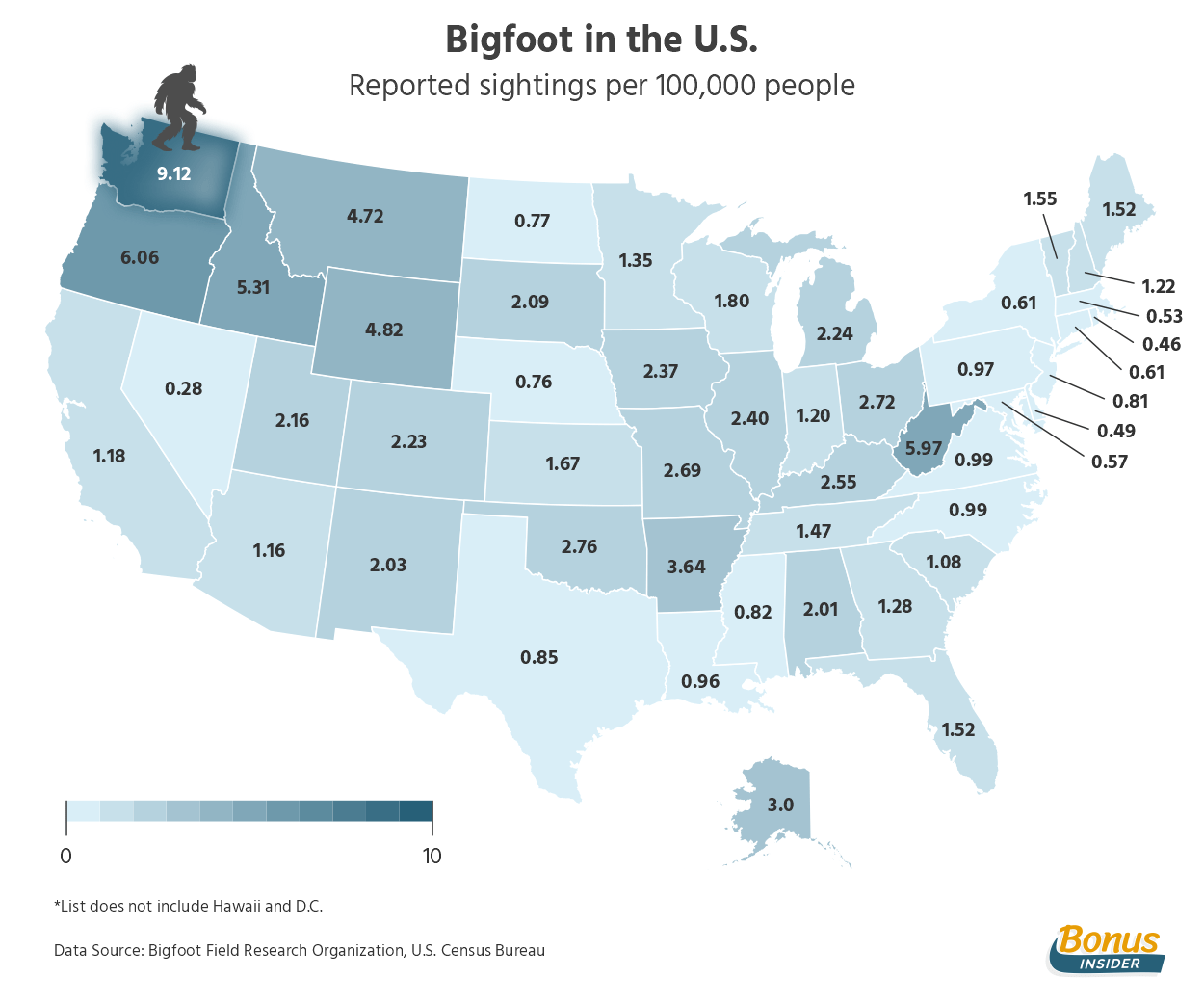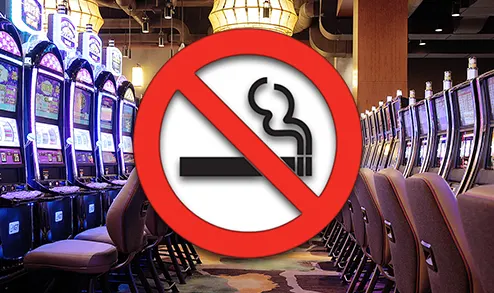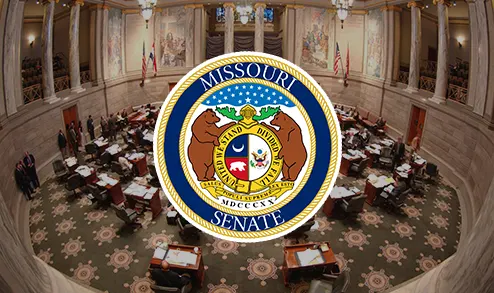Bigfoot, Sasquatch, or Yeti – this elusive creature has been the subject of various conspiracy theories, books, films, and even reality TV shows over the past hundred years or so; myths about giant, hairy, and human-like beasts that roam the forests and mountains have existed for centuries. Such legends can be found all over the world – from North America to China, Russia, and the Himalayas.
Canada and the United States, however, remain the hottest locations for spotting Bigfoot. Each year, hundreds of people report finding huge footprints, hearing odd sounds in the woods, and sometimes even seeing giant ape-men in the wild. Our team at BonusInsider decided to go through the available statistics to find out which states in the U.S. have the highest odds for a Bigfoot encounter.

Methodology
Our team studied Bigfoot sightings records from the Bigfoot Field Research Organization (BFRO) and their website, which lists thousands of alleged encounters and sightings over the past 70 years or so. Note that the BFRO records include only those cases which have been reported to the organization. There are probably thousands more that were never officially submitted as reports on the platform.
We also used state population data from the U.S. Census Bureau, which updates its statistics each year based on projections from the decennial censuses. Estimates about the elk and deer populations for each state are from the Wildlife Informer website, while data for the forest cover of states comes from Wikipedia.
Why Do People Believe in Bigfoot?
Recent polls have suggested that roughly 1 in 5 Americans believe in some conspiracy theory. According to research carried out by the University of Chicago in 2014, 50 percent of people subscribe to at least one such theory – that the U.S. government was behind the 9/11 attacks, that the moon landing was fake, that vaccines cause autism, that viruses such as HIV and Covid-19 were specifically designed by scientists and released to target specific groups of the population and so on.
Another outlandish, yet popular theory deals with the so-called cryptids – mythical creatures whose existence has not been proven by science. These are the Loch Ness Monster, the chupacabra, mermaids, the Kraken, and Bigfoot, among others. Cryptozoology, the science (or pseudoscience if you prefer) that studies these creatures has thousands of supporters around the world. They might be on to something – species such as the gorilla, the okapi, and the giant squid were once thought to be myths, only to be recognized as real by western scientists at a later time.
Legends from the Indonesian island of Flores tell of the Ebu Gogo people, little human-like creatures 5 feet tall who kidnap children and speak their own language. In 2003, the remains of an extinct humanoid species were found on the same island and given the name Homo floresiensis. These archaic humans were very small at 3′ 7″ (110 cm) and their brains would have been much smaller than that of modern humans. Some researchers suggest that the Hobbits, as they were nicknamed, may have lived alongside us as recently as 12,000 years ago.
While the myth of Ebu Gogo may be linked to Homo floresiensis, some cryptozoologists believe that Bigfoot may be a living Gigantopithecus. These giant apes (up to 440–660 lb) lived 2 million to 350,000 years ago and remains have been found all over Southern China. And if modern humans could migrate from Asia to North America by way of the Bering land bridge, is it possible that before them, the Gigantopithecus could have done the same?
According to some, Bigfoot or Sasquatch, as the creature is also known in North America, could be related to these giant apes, which would also explain its apparent similarity to the Tibetan creature Yeti or the Siberian ape-man Chuchunya.
The Best Odds of Spotting Bigfoot in the U.S.
When it comes to Bigfoot and potential sightings, the BFRO, the Bigfoot Field Research Organization, has the most comprehensive data and probably the greatest expertise. So, to calculate the odds of seeing the creature in the U.S., we gathered information from its official website. It lists sightings of Bigfoot that date back to the 1950s, with reports featuring location, date and time, as well as testimonies from the individuals who reported the sightings.
According to the BFRO, Sasquatch or Bigfoot is a large, nocturnal animal that is an omnivore, but relies heavily on meat. It eats fish, as well as squirrels and other small animals, but due to its high nutritional needs – an estimated 5,000 calories a day – it also preys on deer, elk, and even bears. It prefers forested areas where it can remain hidden from people – low population density due to starvation, loss of habitat, and outdoor living could also explain the scarcity of sightings.
In order to calculate how likely it is to actually spot Sasquatch, we compared the number of sightings in each state to the number of people living there. We also looked at states with substantial forest coverage and a robust deer and elk population.
The State of Washington, 710 Reports, 9.12 Sightings per 100,000
With 710 Bigfoot sighting reports, Washington State is the most likely place for a Sasquatch encounter. The odds of seeing one are 10,965 to 1 and even better considering that 52.74% of the territory is covered in forest and is home to at least 270,000 deer (white and black-tailed and mule deer combined), as well as another 1,200 Columbian deer. If present, the Sasquatch could also hunt elk (60,000), along with various small animals. The largest number of reports, 83, are from Pierce County and include various sightings, footprints, and vocalizations and growls heard by witnesses.
Oregon, 257 Reports, 6.06 Sightings per 100,000
At 6.06 reports per 100,000 people, Oregon offers fairly good odds for spotting Bigfoot – 16,500 to 1. Forests are estimated to cover 48.51% of the state territory, while deer and elk, along with plenty of other wild animals, live here. Bigfoot sightings in Oregon date back to the beginning of the 20th century, but the native tribes have legends about “wild men” that are probably much older. Although not an official symbol of the state, the mythical creature is nearly as popular as the salmon and the beaver for Oregonians and the local tourist industry. With a total of 27 reported sightings over the past 40 years, Clackamas County must be a cryptozoologist’s dream.
West Virginia, 106 Reports, 5.97 Sightings per 100,000
Compared to other states, West Virginia does not have a large number of Sasquatch sightings (106 reports) but due to the fact that fewer people live here, the odds of seeing the hairy beast are quite high – 5.97 cases per capita. Recent sightings in the southern part of the state have gained media attention, while the counties with the most cases are Pendelton (14) and Randolph (10). The state has a large population of around 550,000 white-tailed deer, but another important factor in the likelihood of seeing Bigfoot is the landscape – mountainous and heavily forested. Currently, roughly 79% of the state is covered by forests.
Idaho, 103 Reports, 5.31 Sightings per 100,000
The BFRO database does not have a lot of Bigfoot sightings records for Idaho – there are 103 cases described on its website. Once again, due to a population of only 1.94 million people, the likelihood of spotting Bigfoot in the state is quite good. Reported sightings of the elusive creature have become more frequent in recent years, according to some experts. One of the most exciting pieces of Sasquatch footage was recorded in Idaho and uploaded on YouTube in August 2021. It is not among the official BFRO records, and the explanation might be very reasonable – the video does not specify exactly when or where it was shot.
Wyoming, 28 Reports, 4.82 Sightings per 100,000
Wyoming has only 28 Bigfoot sighting reports in the database, with the last one recorded back in 2010, but it is one of the mountain states, and as such has an abundant deer population (over 400,000). With just over 580,000 inhabitants, the odds of spotting Sasquatch are 20,763 to 1. The Cowboy State is not usually associated with Bigfoot, but interestingly enough, a scary encounter with one from the 1970s was recently featured in The UnXplained series on History.
States with the Most Bigfoot Sightings
Some states have more Bigfoot legends than others, along with hundreds of stories told by campers and hunters who have come across strange tracks, strong odors, and unfamiliar sounds in the woods. We also looked at those states and the likelihood of seeing Sasquatch there.
California, 461 Reports, 1.18 Sightings per 100,000
Another state that would obviously make a nice home for Bigfoot while offering a good food source is California. Northern California has long been a hotbed for Sasquatch sightings, with some locals believing that the beast loves the redwoods – the giant, ancient trees also known as Sequoias. These trees that look so pre-historic would constitute the perfect home for the mythical creature, especially if there is enough food to sustain him – and with an estimated 12,500 elk and at least 460,000 deer, there should be plenty. Moreover, sightings have been reported in the Sierra Nevada and the Klamath Mountains for decades.
Florida, 339 Reports, 1.52 Sightings per 100,000
With 339 reported sightings, Florida has the third largest number of cases after Washington and California. 50.68% of its territory is forested, and more than 550,000 deer live here and could attract a large predator like Bigfoot. In fact, some Bigfoot believers say that Florida has its own, unique species of cryptid known as the “Skunk Ape”. The cousin of Bigfoot is said to be smaller in stature (5 to 7 feet), and to exude a distinctive odor, comparable to that of a skunk.
Ohio, 320 Reports, 2.72 Sightings per 100,000
As one of the top states for Bigfoot sightings, Ohio has an interesting collection of legends about the Ohio Grassman. This is the Buckeye state’s version of Bigfoot, and there are other creatures of lore here, such as the Mothman, who is said to be living around the Ohio-West Virginia border. The BFRO database includes 320 sightings, the last of which is from Warren County. It was submitted in January of this year, and witnesses reported seeing a black figure standing on a bike trail roughly three miles south of Oregonia, Ohio.
Illinois, 302 Reports, 2.40 Sightings per 100,000
Although most people would think of the Pacific Northwest when hearing about Bigfoot, states such as Illinois also have plenty of interesting stories to tell. The furry creature is said to have been spotted 302 times in the state since the 1970s, at least according to the BFRO records. The largest number of sightings is in Madison County (24) followed by Jackson County, where 20 sightings have occurred.
Texas, 254 Reports, 0.85 Sightings per 100,000
There has been a long history of Bigfoot sightings in Texas, and no wonder – it is a vast territory, covering an area slightly larger than France. Although many people who have been there associate Texas with desert, only 10% of the state is actual desert; 37.33% is a forested area where Bigfoot or any other mythical creature could exist, effectively hiding from humans for decades. With an estimated 5.5 million deer, the Lone Star State seems quite an attractive place for large omnivores in constant search of food.
 This Monday, Tamil Nadu Governor R.N. Ravi gave his approval to a bill, seeking to ban online gambling in the Indian state after it was passed unanimously by the state Assembly. The news came on the same day when Tamil Nadu Assembly adopted a resolution calling for a specific timeframe for State Governors to approve bills passed by the respective Houses. The resolution also urged the President and the Centre to convince the Governor to approve the bills passed by the Assembly in a timely manner.
This Monday, Tamil Nadu Governor R.N. Ravi gave his approval to a bill, seeking to ban online gambling in the Indian state after it was passed unanimously by the state Assembly. The news came on the same day when Tamil Nadu Assembly adopted a resolution calling for a specific timeframe for State Governors to approve bills passed by the respective Houses. The resolution also urged the President and the Centre to convince the Governor to approve the bills passed by the Assembly in a timely manner. On Monday morning, the media agency Economic Times (ET) reported that the Group of Ministers (GoM) is to look into the goods and services tax (GST) on online gaming, casinos, and horse racing. People familiar with the matter have confirmed that the GoM is likely to maintain the current tax of 18% for skill-based games and propose 28% GST for luck-based games. The GST Council is to make the final decision during its next meeting, which is to take place in the last week of May or the first week of June.
On Monday morning, the media agency Economic Times (ET) reported that the Group of Ministers (GoM) is to look into the goods and services tax (GST) on online gaming, casinos, and horse racing. People familiar with the matter have confirmed that the GoM is likely to maintain the current tax of 18% for skill-based games and propose 28% GST for luck-based games. The GST Council is to make the final decision during its next meeting, which is to take place in the last week of May or the first week of June.  On Tuesday, the Senate passed an amendment bill seeking to prohibit indoor smoking in Kansas casinos. The House of Representatives must approve the legislation before it heads to Gov. Laura Kelly. Health advocates admired the legislative effort, explaining that casino employees will no longer have to suffer the harmful effects of breathing second-hand smoke from cigarettes and cigars. But some people claim that the casino-smoking ban will have a negative revenue impact.
On Tuesday, the Senate passed an amendment bill seeking to prohibit indoor smoking in Kansas casinos. The House of Representatives must approve the legislation before it heads to Gov. Laura Kelly. Health advocates admired the legislative effort, explaining that casino employees will no longer have to suffer the harmful effects of breathing second-hand smoke from cigarettes and cigars. But some people claim that the casino-smoking ban will have a negative revenue impact.  On Thursday, India’s Ministry of Information and Broadcasting issued an advisory, reminding media entities that gambling is illegal and promoting such activities is against the law. This happened only several days after mainstream English and Hindi newspapers published advertisements for betting websites. According to an official statement, the advisory has been issued to all media entities, including newspapers, TV channels, and news websites.
On Thursday, India’s Ministry of Information and Broadcasting issued an advisory, reminding media entities that gambling is illegal and promoting such activities is against the law. This happened only several days after mainstream English and Hindi newspapers published advertisements for betting websites. According to an official statement, the advisory has been issued to all media entities, including newspapers, TV channels, and news websites.  On Wednesday, Albania published its draft law on legalizing online gambling, which was unexpected considering that the country banned nearly all forms of gambling in 2019. Under the provisions of the draft bill, only licensed operators will be allowed to operate in the country.
On Wednesday, Albania published its draft law on legalizing online gambling, which was unexpected considering that the country banned nearly all forms of gambling in 2019. Under the provisions of the draft bill, only licensed operators will be allowed to operate in the country. This Wednesday, the Missouri Senate discussed the latest effort to legalize sports betting in the state until adjourning just before 8 pm. Lawmakers voted against allowing video lottery terminals, and the sports betting bill got stuck in the Senate.
This Wednesday, the Missouri Senate discussed the latest effort to legalize sports betting in the state until adjourning just before 8 pm. Lawmakers voted against allowing video lottery terminals, and the sports betting bill got stuck in the Senate. Top Sport, a Lithuania-based gambling operator, has been slapped with a €15k fine by Lithuania’s gambling regulator for allowing a player to deposit nearly €15k into their account using a debit card owned by someone else. This goes against Lithuania’s gambling law, which only allows users to make deposits using payment accounts registered in their name.
Top Sport, a Lithuania-based gambling operator, has been slapped with a €15k fine by Lithuania’s gambling regulator for allowing a player to deposit nearly €15k into their account using a debit card owned by someone else. This goes against Lithuania’s gambling law, which only allows users to make deposits using payment accounts registered in their name.
 Several Michigan State University (MSU) faculties have joined forces and introduced a petition demanding to terminate the controversial $9 million partnership between the university’s athletic department and Caesars Sportsbook. The petition garnered 154 signatures soon after it was posted at 10:15 am on Tuesday. Current and former faculty members as well as students and parents signed the petition, supporting the idea that the university should end its partnership with the betting company.
Several Michigan State University (MSU) faculties have joined forces and introduced a petition demanding to terminate the controversial $9 million partnership between the university’s athletic department and Caesars Sportsbook. The petition garnered 154 signatures soon after it was posted at 10:15 am on Tuesday. Current and former faculty members as well as students and parents signed the petition, supporting the idea that the university should end its partnership with the betting company.  Chinese Olympic gold medalist Zhang Jike has been accused of sending intimate videos of his ex-girlfriend Jing Tian, a famous Chinese actress, to pay off his gambling debts. Although Zhang denied the accusations, the player lost some of his sponsors, including the Chinese sports brand Anta.
Chinese Olympic gold medalist Zhang Jike has been accused of sending intimate videos of his ex-girlfriend Jing Tian, a famous Chinese actress, to pay off his gambling debts. Although Zhang denied the accusations, the player lost some of his sponsors, including the Chinese sports brand Anta.